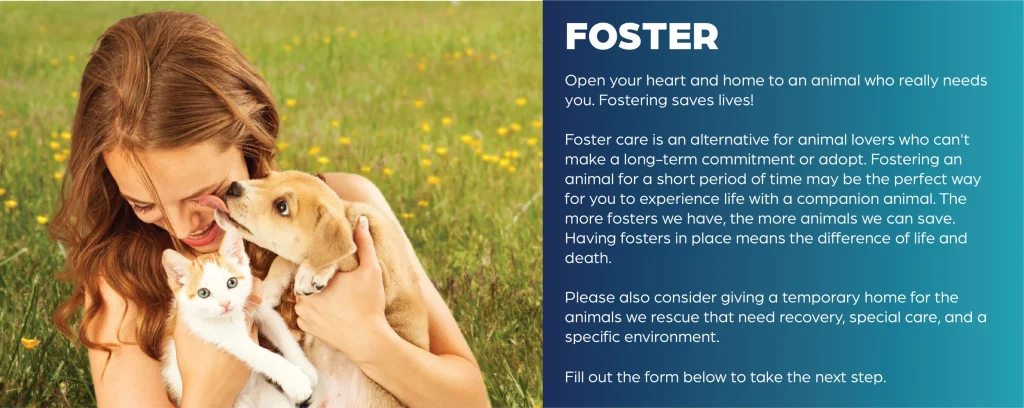Special Care for Pets with Special Needs

Understanding the Importance of Tailored Support
Every pet deserves love and care, but pets with special needs require dedicated attention to thrive. Whether they face physical disabilities, chronic illnesses, or behavioral issues, understanding their unique challenges can significantly enhance their quality of life. Owners of these remarkable animals embark on a journey that demands more than just basic care; it calls for specialized knowledge and unwavering commitment.
Medical Needs
Special care begins with a strong emphasis on medical needs. Regular veterinary check-ups are crucial for monitoring health status, providing necessary vaccinations, and identifying any emerging issues early. For pets with chronic illnesses, such as diabetes or arthritis, managing their condition often requires specialized treatments and tailored medication regimens. This can also include routine blood work or physical therapy, ensuring that each animal receives the appropriate interventions to live comfortably. For example, organizations such as the American Society for the Prevention of Cruelty to Animals (ASPCA) offer new owners essential resources to navigate these medical requirements effectively.
Nutritional Requirements
Another significant aspect is nutritional requirements. Some pets have dietary restrictions or allergies that necessitate specific diet plans. For instance, a dog with kidney disease might require a low-protein diet to reduce stress on its kidneys, while a cat diagnosed with urinary crystals may benefit from a special formulation designed to dissolve them. Owners often work closely with veterinarians to formulate personalized meal plans, considering factors like age, weight, and health conditions. A well-nourished pet is not only healthier but also more energetic and resilient.
Physical Support
Physical support is another critical consideration. For pets with mobility challenges, equipment such as wheelchairs or harnesses can make a world of difference, allowing them to move about freely and engage with their environment. Products like specialized orthopedic beds provide comfort and support for joints, helping alleviate pain associated with conditions like hip dysplasia. Innovative companies, such as K9 Carts, manufacture custom fittings for dogs in need, making mobility accessible and enjoyable.
Emotional Well-Being
Finally, the emotional well-being of a special needs pet cannot be overlooked. These animals often require consistent companionship and emotional support. Engaging in regular training sessions can address behavioral issues stemming from anxiety or past trauma, fostering a stronger bond between pets and their owners. Positive reinforcement techniques encourage good behavior and can significantly enhance the pet’s confidence, leading to a more fulfilling life. Support groups and training programs across the United States provide guidance on effectively managing these challenges.

In the United States, resources and communities are readily available for owners of pets with special needs. Various organizations and support groups provide vital information, assistance, and connections to local services, making the journey less daunting. These networks not only share knowledge but also create a sense of community among pet owners, fostering connections that enrich their experience.
Understanding the nuances of special care not only benefits the pets but also enhances the bond between them and their owners. This deepened relationship often leads to a rewarding experience that transcends challenges, paving the way for a fulfilling life for both pets and their families. By embracing the unique needs of these companions, owners can transform obstacles into opportunities for joy and connection.
LEARN MORE: Click here to discover the importance of parasite prevention
Tailored Strategies to Enhance Quality of Life
When it comes to special care for pets with special needs, it’s essential to embrace a holistic approach that encompasses various aspects of their lives. Each pet is unique, and tailoring strategies to meet their specific requirements can make a significant difference in their overall well-being. From creating a safe and engaging environment to implementing structured routines, ensuring that these animals live fulfilling lives is a shared responsibility between pet owners, veterinarians, and support communities.
Creating an Accessible Environment
One of the first steps in providing special care involves creating an accessible environment. This means removing obstacles that could hinder mobility or cause stress. Simple adaptations can make a world of difference for pets facing physical challenges:
- Ramps and Steps: Installing ramps or pet steps can help pets with limited mobility access their favorite spots without strain.
- Non-Slip Flooring: Using non-slip mats or rugs can prevent slips and falls, providing a safer living space.
- Convenient Feeding Areas: Positioning food and water bowls at a comfortable height or providing elevated feeders can aid pets who struggle to bend down.
By proactively addressing the physical layout of the home, owners can significantly improve their pets’ day-to-day experiences.
Consistent Routine and Enrichment
Establishing a consistent routine is vital for the safety and comfort of special needs pets. They often thrive when they can predict their daily activities, reducing anxiety and promoting overall well-being. Regular schedules for feeding, exercise, and medication create an atmosphere of stability. Additionally, incorporating elements of mental stimulation into their daily routine can help alleviate boredom and foster a sense of purpose.
Many pets benefit from engaging activities, such as:
- Interactive Toys: Puzzle feeders and toys can stimulate a pet’s mind while encouraging physical activity.
- Scent Work: Harnessing a pet’s sense of smell through scent games can be both rewarding and calming.
- Gentle Exercise: Tailoring fitness routines—such as short walks or low-impact play sessions—ensures that activities match their physical abilities.
Veterinary Collaboration
Collaboration with a trusted veterinarian is paramount in the journey of caring for a special needs pet. Regular consultations not only keep owners informed about potential advancements in treatment options, but they also facilitate timely adjustments to care strategies. Veterinarians can provide valuable guidance on pain management, behavioral concerns, and nutritional adjustments tailored specifically to each pet’s unique health status.
Furthermore, many clinics in the United States offer specialized programs or resources for pet owners, helping them navigate the complexities of care for their animals with special needs. Recognizing when to seek professional help can be crucial in ensuring a pet’s emotional and physical health remains a priority.
Each effort made toward understanding and accommodating the needs of special needs pets can contribute immensely to their happiness and overall quality of life. By nurturing both their physical and emotional requirements, pet owners will cultivate an enriching environment that transforms challenges into cherished experiences, enabling their beloved companions to flourish.
Understanding Special Care for Pets with Special Needs
When it comes to special care for pets with unique challenges, the journey can be filled with both difficulties and rewards. These pets often require tailored care that addresses their distinct medical, emotional, and physical needs. Owners must be well-informed and committed to providing the support necessary for their furry companions to thrive. This dedicated approach enhances the quality of life for pets dealing with allergies, disabilities, or chronic illnesses.One important aspect of their care is ensuring that their physical environment is adapted accordingly. This can include the use of ramps for mobility-challenged pets or specialized bedding that alleviates pressure points for those with joint issues. Furthermore, nutrition plays a vital role, with many special-needs pets benefiting from diets that are specific to their health conditions. Socialization is another critical element. Strategies to include pets in activities can significantly affect their mental well-being. Owner education, combined with community support, can foster environments where both pets and their owners can connect, share experiences, and explore available resources.
| Category | Advantages |
|---|---|
| Custom Nutrition | Specially formulated diets enhance health and energy levels in pets with unique needs. |
| Enhanced Comfort | Adaptive equipment and bedding provide necessary support for mobility and relief from pressure. |
These aspects are essential in the comprehensive care of pets with special needs. Providing the right support helps them lead fulfilling lives, drawing pet owners closer to their beloved companions in ways they might never have anticipated. Every effort made towards understanding and addressing these requirements allows both humans and pets to build stronger, more meaningful relationships.
FOR MORE INSIGHT: Click here to learn how to recognize signs of stress and illness in pets</a
Nutrition and Tailored Diets
A cornerstone of special care for pets with special needs is ensuring they receive a nutritionally balanced diet tailored to their individual health issues. Pets with special needs often have unique dietary requirements, whether due to medical conditions, age, or reduced mobility. Working with a veterinarian to formulate a specialized diet can play a pivotal role in managing health concerns and enhancing quality of life.
Understanding Dietary Needs
For example, pets with obesity require caloric restrictions along with high-quality, nutrient-dense foods to promote weight loss without sacrificing health. Other pets may need hypoallergenic diets to manage allergies or even prescription diets designed to address specific medical issues such as kidney disease or gastrointestinal disorders. Common dietary strategies include:
- High Fiber Options: For pets with digestive issues, high fiber diets can promote healthy bowel movements.
- Omega Fatty Acids: These healthy fats can help improve skin and coat conditions and provide anti-inflammatory benefits.
- Customized Meal Plans: Tailoring meal sizes, types, and frequencies to fit the pet’s activity level and health status enhances their overall nutrition.
Monitoring weight regularly and staying mindful of any changes in digestion or appetite allows owners to make necessary adjustments to their pet’s diet proactively.
Assistive Devices and Technology
Advancements in technology have introduced a variety of assistive devices that can significantly improve the lives of pets with special needs. These devices range from simple straps and slings to specialized wheelchairs designed for animals with limited mobility:
- Mobility Aids: Customized wheelchairs allow dogs with hind leg issues to regain their mobility and life satisfaction.
- Orthopedic Beds: These beds provide joint and back support, ensuring better rest for pets suffering from arthritis or other orthopedic conditions.
- Monitoring Devices: Wearable technologies can keep track of a pet’s physical activity and health metrics, helping owners manage their pet’s health proactively.
Utilizing such technologies can support a more independent life for special needs pets, making everyday tasks easier and enhancing their quality of life.
Emotional Well-Being and Social Interaction
Beyond physical care, emotional well-being is a critical component of maintaining quality of life in special needs pets. Many of these animals experience anxiety and stress due to their unique circumstances. Incorporating elements such as socialization and interaction with other pets and humans can create a nurturing environment. Techniques include:
- Regular Human Interaction: Engaging in regular play and cuddle time not only strengthens the bond but also alleviates feelings of isolation.
- Dog Parks and Controlled Environments: Friendly interactions with other pets can encourage social skills, provided the setting is manageable and safe.
- Therapy Animals: Some pets have benefitted from structured therapeutic sessions with trained professionals, which can enhance their emotional resilience.
Recognizing the signs of anxiety in pets, such as excessive barking or hiding, allows owners to take appropriate action to foster a calming atmosphere.
Incorporating these tailored strategies, from nutrition to assistive technology and emotional enrichment, amplifies the efforts made in caring for pets with special needs. Each step taken ensures that these animals live not only longer but healthier, happier lives.
DISCOVER MORE: Click here to learn about the best food options for your pet’s health
Final Thoughts on Special Care for Pets with Special Needs
In conclusion, providing special care for pets with special needs is both a commitment and a privilege that enriches the lives of these vulnerable animals. By understanding their unique needs—whether through tailored nutrition, advanced assistive technologies, or emotional support—pet owners can significantly enhance their pets’ quality of life. It’s crucial to recognize that each pet is an individual with distinct requirements, making customized care plans essential.
Engagement with a qualified veterinarian can guide you through the intricacies of establishing a diet best suited for your pet’s health conditions while also exploring the latest innovations in assistive devices. Furthermore, ensuring a social and emotionally supportive environment can mitigate anxiety and foster overall well-being, allowing these pets to thrive despite their challenges.
As we become more innovative in our approaches to pet care, it’s imperative to embrace emerging technologies and practices that cater to special needs. This is not only an act of compassion but also one that has the potential to foster stronger bonds between pets and their owners. Whether through mobility aids or therapeutic interventions, the options available today are transforming the lives of special needs pets for the better.
Thus, by advocating for the well-being of these extraordinary companions, we contribute not only to their health but also to a greater understanding of the diverse needs of all animals. The journey may require patience and persistence, but the joy derived from witnessing a special needs pet flourish is a reward beyond measure.


